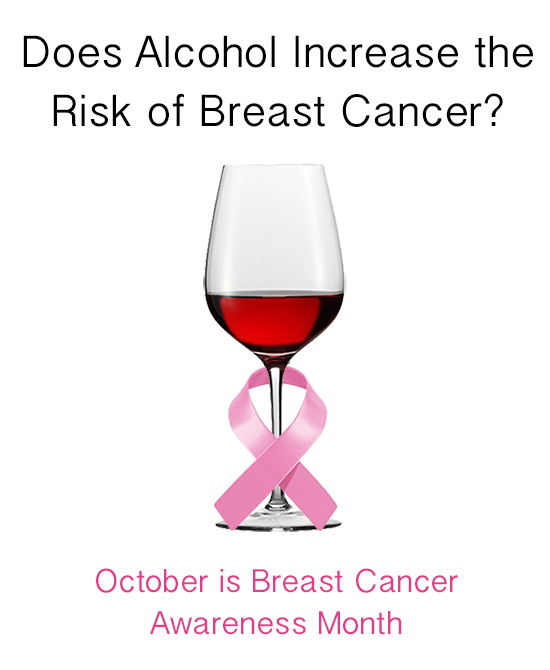Does Drinking Alcohol Really Increase Your Cancer risk?
Does Drinking Alcohol Really Increase Your Cancer Risk?
Nowadays all youngster addicted towards the alcohol, all the people know about alcohol and alcohol disadvantages even all alcohol shop or bottle u can find a dangerous warning of drink alcohol. after all the alcoholic people know if he/she drink alcohol what is the problem created by alcohol but he/she don't stop drink because they all peoples addicted towards alcohol. if you all peoples drink alcohol it's very dangerous to for your health and its increased risk of cancer.
Here I write an article about alcohol increase risk of cancer.
what is alcohol
Alcohol is the common term for ethanol or ethyl alcohol, a chemical substance found in beer, wine, and liquor, as well as in some medicines, mouthwashes, household products, and essential oils (scented liquids taken from plants). Alcohol is produced by the fermentation of sugars and starches by yeast.The main types of alcoholic drinks and their alcohol content are as follows:
- Beers and hard ciders: 3-7 percent alcohol
- Wines, including sake: 9-15 percent alcohol
- Wines fortified with liquors, such as port: 16-20 percent alcohol
Liquor, or distilled spirits, such as gin, rum, vodka, and whiskey, which are produced by distilling the alcohol from fermented grains, fruits, or vegetables: usually 35-40 percent alcohol (70-80 proof), but can be higher.
Unfortunately, alcohol lovers all over the world need to be aware of the latest information on this topic.
According to a recent extensive review of multiple research studies, alcohol consumption has been conclusively shown to be the direct cause of seven types of cancer – including those of the oropharynx, larynx, esophagus, liver, colon, rectum, and breast.
Also, there is growing evidence to implicate alcohol consumption in the development of skin, prostate, and pancreatic cancer.
It gets worse. This review also showed that people who smoke and drink at the same time are at even greater risk of getting cancer. And according to a 2009 study, an estimated 3.5 percent of all cancer-related deaths in the U.S. can be attributed to alcohol consumption.
How does alcohol increase cancer risk
By generating reactive oxygen species (ROS − chemically reactive toxic molecules that contain oxygen), which damage DNA, proteins, and fats in the body via a chemical reaction known as oxidationBy impairing the body’s ability to absorb and use various nutrients associated with cancer risks – such as vitamins A, the B complex vitamins such as folate, vitamin C, vitamin D, vitamin E, and carotenoids.
which type of cancer
[READ: How to control hair fall and grow speedily, The best top 10 ways in 2017]
Breast Cancer More than a hundred epidemiologic studies have examined the link between alcohol consumption and breast cancer risk in women. [Note: Epidemiology is the study and analysis of the patterns, causes, and effects of health and disease conditions in specific populations.]Liver Cancer
Liver cancer – known scientifically as hepatocellular carcinoma – is diagnosed in half a million people worldwide every year. Alcohol consumption is an independent risk factor for, and a primary cause of, liver cancer. Too much alcohol metabolism in the liver is believed to increase liver cancer risk via excessive production of harmful reactive oxygen species (ROS), increased activity of liver cytochrome P450 enzymes, and alcohol-induced deficiency of beneficial antioxidants due to impaired absorption from the gut and a poor diet.Colorectal Cancer
Alcohol consumption has been linked to a modestly increased risk of cancer of both the colon and rectum. A meta-analysis of 57 studies showed that people who regularly drank approximately 3.5 drinks daily had 1.5 times the risk of developing colorectal cancer as non-drinkers, or occasional drinkers. In other words, there is a clear association between alcohol consumption of more than one drink daily and higher colorectal cancer risk.Numerous other studies have looked for possible links between alcohol and the risk of other cancers, such as those of the pancreas, ovary, prostate, stomach, uterus, and bladder. However, either no association has been found or the evidence for such an association is inconsistent.
Esophageal cancer:
Alcohol consumption is a major risk factor for a particular type of esophageal cancer called esophageal squamous cell carcinoma (2). In addition, people who inherit a deficiency in an enzyme that metabolizes alcohol have been found to have substantially increased risks of alcohol-related esophageal squamous cell carcinoma.
On the other hand, in studies that have focused on head and neck cancers and on esophageal cancer, stopping alcohol consumption does not automatically mean lowered cancer risk right away. Instead, it may take years for cancer risk to come down again.
For example, a pooled analysis of 13 case-control studies of cancer of the mouth, throat, and pharynx combined found that alcohol-associated cancer risk did not begin to drop until at least 10 years after stopping alcohol consumption. Even 16 years after they stopped drinking alcohol, the risk of cancer was still higher for ex-drinkers than for people who had never consumed alcohol.



No comments